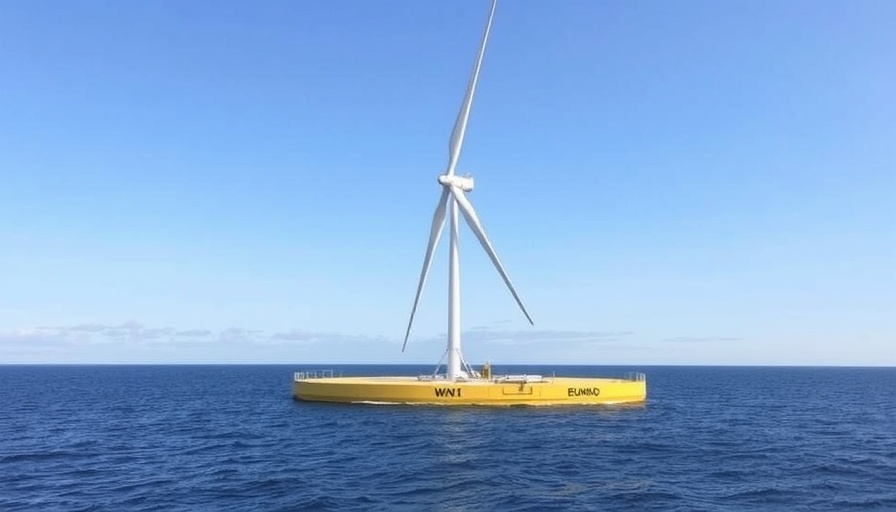
Unforeseen Challenges in Offshore Wind Energy Research
The Department of Energy (DOE) has made headlines recently by halting a significant $13 million grant designated for the University of Maine’s research and development of floating offshore wind turbine technology. This decision has left many in the energy sector perplexed, especially considering the growing emphasis on renewable energy sources.
Understanding the Importance of Floating Wind Turbines
Offshore wind energy represents a pivotal opportunity for the future of sustainable power generation. Floating wind turbines, specifically, are designed to convert wind energy in deeper waters inaccessible to traditional fixed turbines. They promise to harness powerful winds and exponentially increase renewable energy output. Disruptions like the DOE’s funding halt could have larger implications on technological advancements needed to meet growing energy demands and reduce reliance on fossil fuels.
What Led to the Funding Suspension?
The suspension of the grant has raised eyebrows not only because of the funds involved but also due to the potential setback in technological innovation. Industry experts believe that the halt could be a reflection of larger concerns regarding project management and feasibility evaluations that the DOE might have discovered during oversight processes. While the details remain limited, stakeholders are now pushing for clarification and dialogue to understand the way forward.
Broader Impacts on the Renewable Energy Landscape
The decision to withdraw financial support from the University of Maine is not happening in isolation. Other major projects across the nation are similarly vying for government funding and support. This ripple effect raises questions about the sustainability of future renewable energy initiatives. With increased global demand for clean energy, financial constraints like these could hinder progress in meeting climate goals set by various government entities.
What This Means for Local Contractors
For local contractors and businesses invested in the renewable energy sector, the implications are significant. The uncertainty surrounding funding can stall jobs, reduce project pipelines, and challenge the credibility of emerging technologies. Contractors engaged in the renewable installation sector should remain informed and adaptable to potential shifts in policy and market dynamics.
Future Predictions: The Path Forward
While this setback is certainly disheartening, many industry analysts predict that the sector will rebound. Public interest in green technologies suggests that with advocacy and pressure, new funding avenues can be explored. Public-private partnerships may emerge as a viable approach to sustaining momentum in offshore wind projects and maintaining project equilibrium.
Call to Action: Become a Champion for Renewable Energy
If you are passionate about renewable energy and want to support advancements in offshore wind technology, consider engaging with local advocacy groups. Push for sustainable practices in home constructions, remodels, and community initiatives. Your involvement can help drive the change we need for a greener future.
 Add Row
Add Row  Add
Add 




Write A Comment